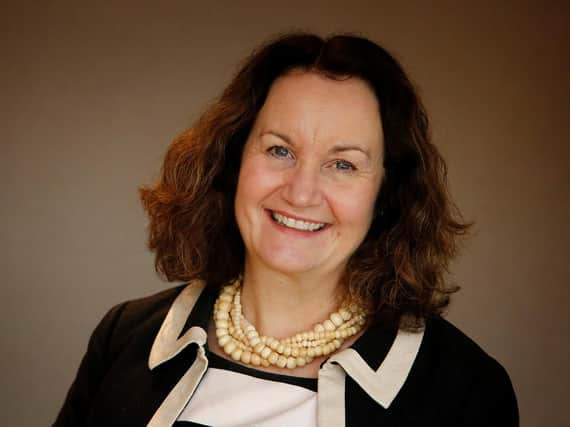Sunderland University's vice chancellor to advise government on social mobility


As a member of the Social Mobility Advisory Group, Shirley Atkinson will have a role in advising the government and sporting English universities to improve access and long-term success for under-represented groups in higher education.
Launched by Universities UK (UUK), the Social Mobility Advisory Group will publish a report in the summer which will be given to the Minister for Universities and Science Jo Johnson MP, after the Minister invited UUK to form the group last year.
Advertisement
Hide AdAdvertisement
Hide AdRecommendations in the report will also be fed back to Prime Minister David Cameron, following his announcement last year of a series of 2020 goals to improve social mobility in a number of areas of society, including universities, the armed forces and the police.
The University of Sunderland was invited to be part of the group due to the institution’s long-standing commitment to widening participation, offering life-changing opportunities for learners from all walks of life.
Ms Atkinson, said: "I am very pleased indeed to join the Social Mobility Advisory Group and offer our experience in, and support for social mobility. We have been one of the leaders in widening participation in Higher Education for more than 20 years.
"During that time we have improved and enhanced our work in this area, from widening access generally to supporting specific groups, such as looked after young people. Today, we are working hard to improve social capital for widening access students and graduates, ensuring they have every opportunity to achieve their goals. It is essential that we support these students throughout their time with us."
Advertisement
Hide AdAdvertisement
Hide AdThe group, to be chaired by the Chief Executive of Universities UK Nicola Dandridge, will include representation from vice-chancellors, schools, colleges, government, employers and widening participation practitioners. The group will consider the current evidence, explore what universities in England are doing that works, and address what more could be done.
In its work, the group will look at the entire student journey, from aspirations at school, to the process of applying to university, through to career progression once students graduate. The group will also consider the options available for people later in life, such as for those who need to develop their skills as their job changes or those who were unable to attend university when they were younger.
At Sunderland, widening participation activity includes working with school and community groups from primary education level through to mature learners looking for a pathway to higher level learning. The University’s award-winning work with care leavers has received national recognition by the Frank Buttle Trust and won the Guardian Widening Participation Award in 2014, in recognition of the very targeted package of support the University has developed to attract care leavers into higher education.
Nicola Dandridge said: “Universities are committed to making higher education available to anyone who can benefit, regardless of their background. This has long been a priority for universities who invest considerable resource in addressing disadvantage. There are now 40% more students from disadvantaged backgrounds at university compared to 10 years ago. However, there is still much more that we can and must do.
Advertisement
Hide AdAdvertisement
Hide Ad“Social mobility in higher education is about more than just access to university. It is about fulfilling a person’s potential in ensuring not only that all those who can benefit from university apply, but that they also stay on, get a good degree and progress well in their chosen career path.
“I am pleased that Universities UK has been invited to lead on what is a crucially important area for individuals, society and the economy.
“Student decisions about what to study and where must reflect their ambitions and aspirations, and not their social background or where they live. It is important that their decisions take into account the full diversity of our universities and the range of courses on offer. Social mobility is about opening minds, not narrowing choices.”